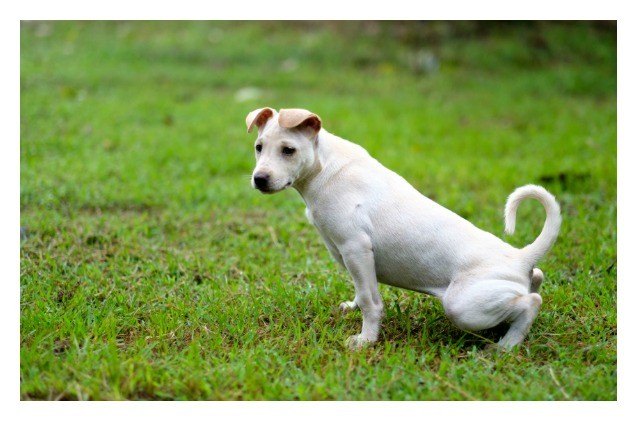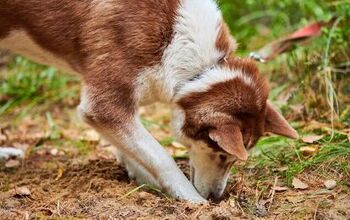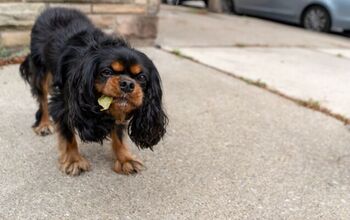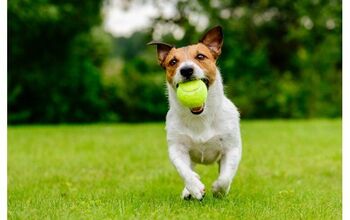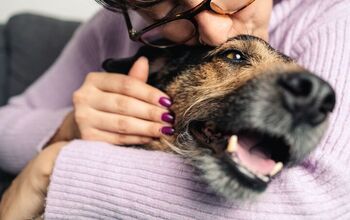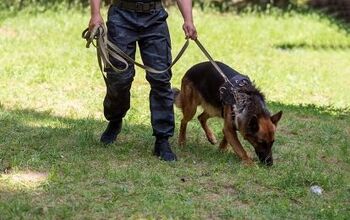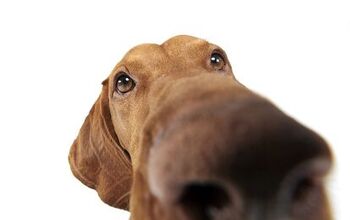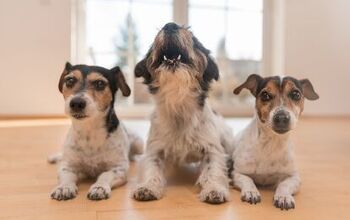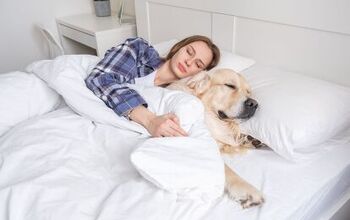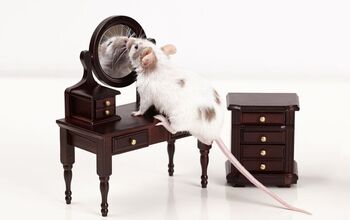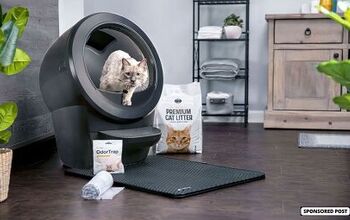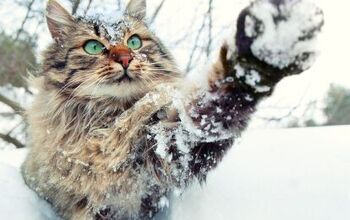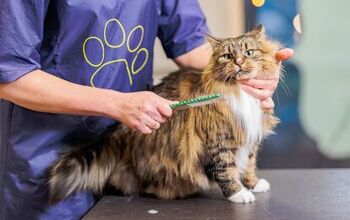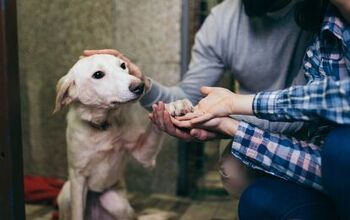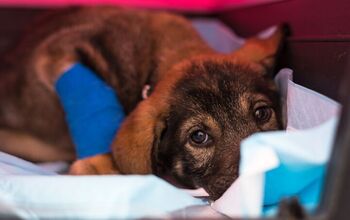How Do I Save My Lawn From Dog Pee?

First things first. Be sure that it really is your dog’s pee that is killing your grass. If you’ve got several round spots in an otherwise field of lovely green, most likely it is the urine that is doing the damage. You can be 100% sure by gently pulling the brown grass to see how firm the roots are. If the roots are still pretty secure, most likely, the spots are urine spots. That said, if you can pull out big amounts of grass, you might want to consult a lawn specialist as there may be a more significant issue.
Still, there’s no denying that dog urine does do damage to grass. What is it exactly about your dog’s urine that creates the ‘dog spots’? In a nutshell, it’s the high concentration of nitrogen your dog releases from the urea in his urine. Additionally, salts that come out in your dog’s urine can also ‘burn’ the grass if it’s directly applied, as is the case when your dog takes a squat. Contrary to popular belief that female dogs’ urine creates spots, but male dogs’ urine doesn’t, it’s more about the contact the urine has with the blades of grass than boy or girl. Because female dogs typically squat, their urine covers more grass surface area and coats the blades more. Males, when they lift their legs, disperse the urine more and the concentration of nitrogen isn’t quite as heavy.
Lawns are made nice and plush because of the nitrogen in fertilizer. That’s why we put fertilizer down annually. Still, too much, and in concentrated amounts like in urine, is not a good thing at all.
The thing is, nitrogen is a natural waste product in urine, and it’s the result of your dog’s normal body processes. It’s the result of protein breaking down as it’s digested. Dog diets are high in protein, usually, and this means their urine is higher in nitrogen content. As long as your pet is using your lawn to go potty like a good girl or boy, you’ll be battling this issue.
The real question is, “How can I save my lawn from dog pee?” since we’re agreed it’s always going to be an issue?
Fortunately, there are some really great ways to keep the whole yard looking green and groovy.
- Dog Rocks. Yes, you can (and should) make sure your dog gets plenty of water, but another natural dog pee option is one of our favorite things: Dog Rocks. Dog Rocks are dissolved in your dog’s water bowl. They do NOT work to reduce the acidic pH like enzyme treatments do. Instead, they reduce the level of tin in your dog’s water and add plant-friendly (read: lawn-friendly) nutrients. They’re made from naturally occurring rock and are completely safe to ingest. If your kitty and dog share the same water bowl, they’re safe for cats, too! By absorbing potentially lawn-damaging elements from your dog’s urine before it’s even released, you’re preventing the scorch in an all-natural way.
- Most vets will tell you that one of the best and easiest ways to help the nitrogen concentration in your dog’s urine is simple: hydration! We know hydration is vital to dogs anyway, as they are made of even more water than we humans are. But, making sure your pet gets plenty of water can dilute their urine (think of how your pee looks clear when hydrated, yellow when you’re not), and that is good for both your pet and your lawn!
- Of course, you can always try to train your dog to pee in areas that there isn’t grass to ruin. Perhaps teach them to use the gravel or mulch you’ve designated, or even find an area around the side of the house where it’s not as sightly. Take note, though, that’s tough, as dogs are creatures of habit, and oh, they like to mark their territory with scent and urine. If you let them out in your yard to play and explore? They’re going to want to lift their leg or squat.
- Enzymatic supplements. Some pet parents give their dogs enzyme supplements that possibly help balance the pH in their dogs’ urine, but veterinarians caution against some of those in that they can be damaging to dogs with liver or kidney issues. And, if you don’t know your dog has those issues, you still may be putting them at risk. The issue is a nitrogen issue, not a pH issue, and you should always check with your vet before giving your pet any enzymes for that purpose.
Dealing with brown spots in your yard comes with the territory of being a pet parent, but there are ways you can save your lawn from your dog’s pee. Follow our tips above, and the whole family can enjoy the benefits of beautiful grass.

More by Lori Ennis



